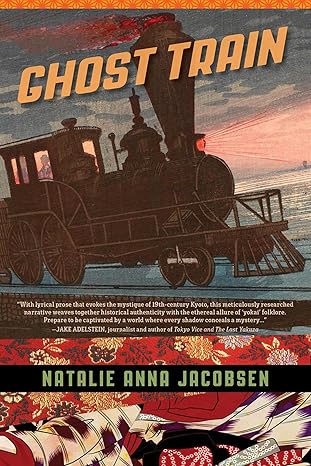
Set against the backdrop of 1877 Kyoto during the Meiji Restoration Era, Ghost Train follows the journey of Maru Hosokawa, the daughter of a samurai. As her father relinquishes his sword and transitions into a civilian merchant, Maru is thrust into a life that starkly contrasts her upbringing. Left to navigate her own path while her father’s work takes him further away, she seeks employment to help restore their family’s wealth and protect herself.
However, as summer festivals commence, Maru begins to encounter ghosts that complicate her already challenging life. Faced with an abusive employer, unreliable friends, and personal insecurities, she finds herself at a crossroads. When a kitsune offers assistance in exchange for her help confronting a demon wreaking havoc in Kyoto, Maru is drawn into a deeper conflict. As the city suffers from plagues, bloodshed, and rumors of samurai rebellion, she must make perilous decisions to safeguard herself, her father, and the city she loves.
Inspired by true historical events and rooted in yokai mythology, Ghost Train reflects the turbulence of 19th-century Japan under Emperor Meiji, infused with supernatural elements and rich historical detail.
Book Description:

| Book | Ghost Train |
| Series | None |
| Parts | None |
| Publication Date | 17 September 2024 |
| Author | Natalie Anna Jacobsen |
| Publisher | Select Books Inc |
| ISBN-10 | 1590795644 |
| ISBN-13 | 978-1590795644 |
| Pages | 288 pages |
| Publication Format | Paper Back, Kindle |
Bio of the Author:

Natalie Jacobsen’s writing journey began in high school, where she nurtured her storytelling skills through various creative writing programs both locally and internationally. She transitioned from fiction to journalism in college, and after graduating, spent six years in Japan, where she wrote and photographed for magazines, television, and music studios. This experience deepened her appreciation for mythology, history, and the stories waiting to be told.
Upon returning to the U.S., Jacobsen reported on civil rights and actively defended journalists’ Freedom of Information Act (FOIA) rights in court. Her diverse background in storytelling and journalism has enriched her fiction, enabling her to weave intricate narratives that resonate with historical authenticity and mythological depth.
